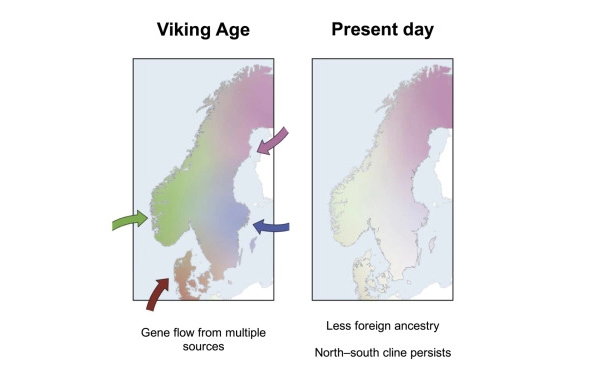The rise of steel

1—The rise of steel
Steel – because of its "useful material properties", and the fact "it's cheap" – has become ubiquitous in the modern world. Without steel, "modern life would largely be impossible", especially construction:
"Every modern structural system, for instance, relies on steel to function. Steel gets used for the beams and columns in structural steel framing (used in everything from 100 story skyscrapers to single-story commercial buildings), as the reinforcing in both concrete and masonry, and as the connectors – bolts, nails, screws, staples, truss plates – that hold together light framed wood and heavy timber construction. Roughly half the world's steel produced each year is used by the construction industry, and the spread of steel into building systems is one of the main ways that modern methods of construction differ from historical ones."
That's from Brian Potter who penned an interesting two-part essay (~15 minute read) on the history of steel, covering the development of the blast furnace to the Bessemer process, which reduced costs and led to its widespread use in construction and manufacturing.
2—Unintended consequences
Implemented on 25 May 2018, the EU's General Data Protection Regulation (GDPR) was designed to protect "fundamental rights and freedoms of natural persons and in particular their right to the protection of personal data".
But even the best intentioned policies often come with unintended consequences:
"The present state of play is unsettling. Scientists are struggling to find a legal basis for sharing data under the regulation. US federal agencies such as the National Institutes of Health, the largest global funder of biomedical research, and its sister public agencies have no pathway available to receive pseudonymised data collected by research partners in the EU. Without an adequacy decision, US agencies and many publicly supported research universities are legally barred from agreeing to GDPR data-transfer requirements."
That's from Robert Eiss, who notes that because of the GDPR, some cancer patients in the US are unable to access matched samples from Europe for stem-cell transplantation treatment, despite donor consent. European clinical research is also set to suffer, with one estimate indicating that an inability of Europeans to share data with foreign agencies "may lead to €8.9bn less a year spent by companies within the EU on trials".
You can read the full article here (~4 minute read).
3—Only in America

4—A world of movement in all directions
What impact did the 'Viking Age' have on the movement of people? Quite a bit, but in ways not previously understood:
"We used to speak of a 'Viking expansion,' in which the ancient Scandinavians somehow pushed out into the wider world in search of portable wealth, trading contacts, and lands to settle. [But] this was a world of movement in all directions—into Scandinavia as well as out of it."
That's from Neil Price, an Uppsala University professor of archaeology who was commenting on new research published the journal Cell, which used the DNA of ancient Scandinavians to examine the movement of peoples into the region during the Viking Age around 1,000 years ago.
Interestingly, the newcomers to Scandinavia did not flourish, with a notable decline in Baltic and British-Irish ancestries among Scandinavians following the Viking Age.

According to Anders Götherström, a co-author of the study, the decline may be due to the fact that many of the people who came to Scandinavia during the Viking period "didn't build families and weren't as efficient in getting children as the people who were already living there".
You can read the full summary by Aylin Woodward here (~6 minute read), or check out the paper itself here.
5—Further reading...
💂♂️ "[I]f social authoritarianism is more of a deal-breaker for younger voters (and there are good reasons to believe it is) then we would expect those voters to reject the right even when sharing its economic outlook - which could account for what we see in GB & US [& AUS]."
👩💻 Twitter was hacked in 2021 (before Musk's reign), with 235 million users' details "now available to anyone on the dark web with a couple extra bucks to spend".
🚘 "Phoenix is the first airport anywhere in the world to have autonomous service bringing people to our airport [they're using electric Jaguar Waymo vehicles."
🤖 A war they will not win (and shouldn't be fighting): "The New York City Department of Education is blocking access to ChatGPT on networked devices... due to concerns about negative impacts on student learning and [the] accuracy of content."
🏛️ Why was Roman concrete so durable? "Hot mixing, the team has now concluded, was actually the key to the super-durable nature."
📚 What books does Xi Jinping have on his bookshelf?